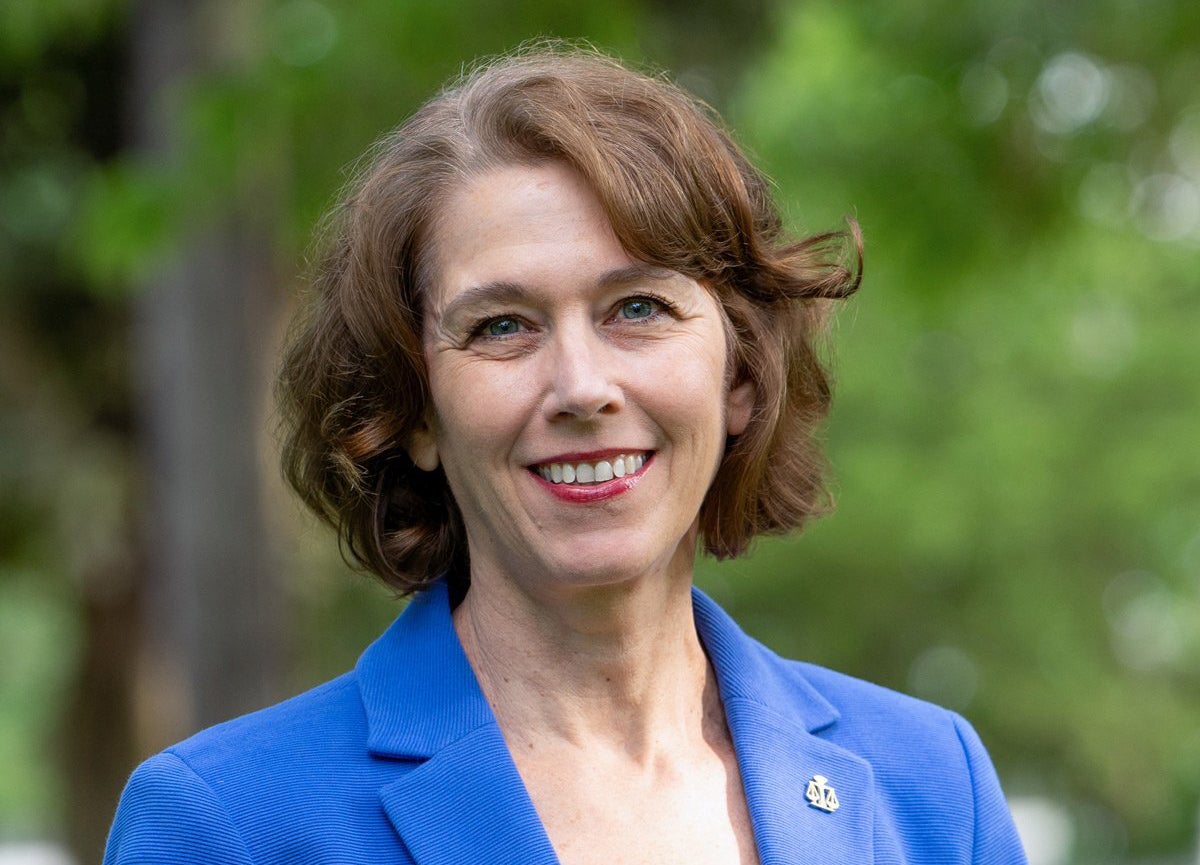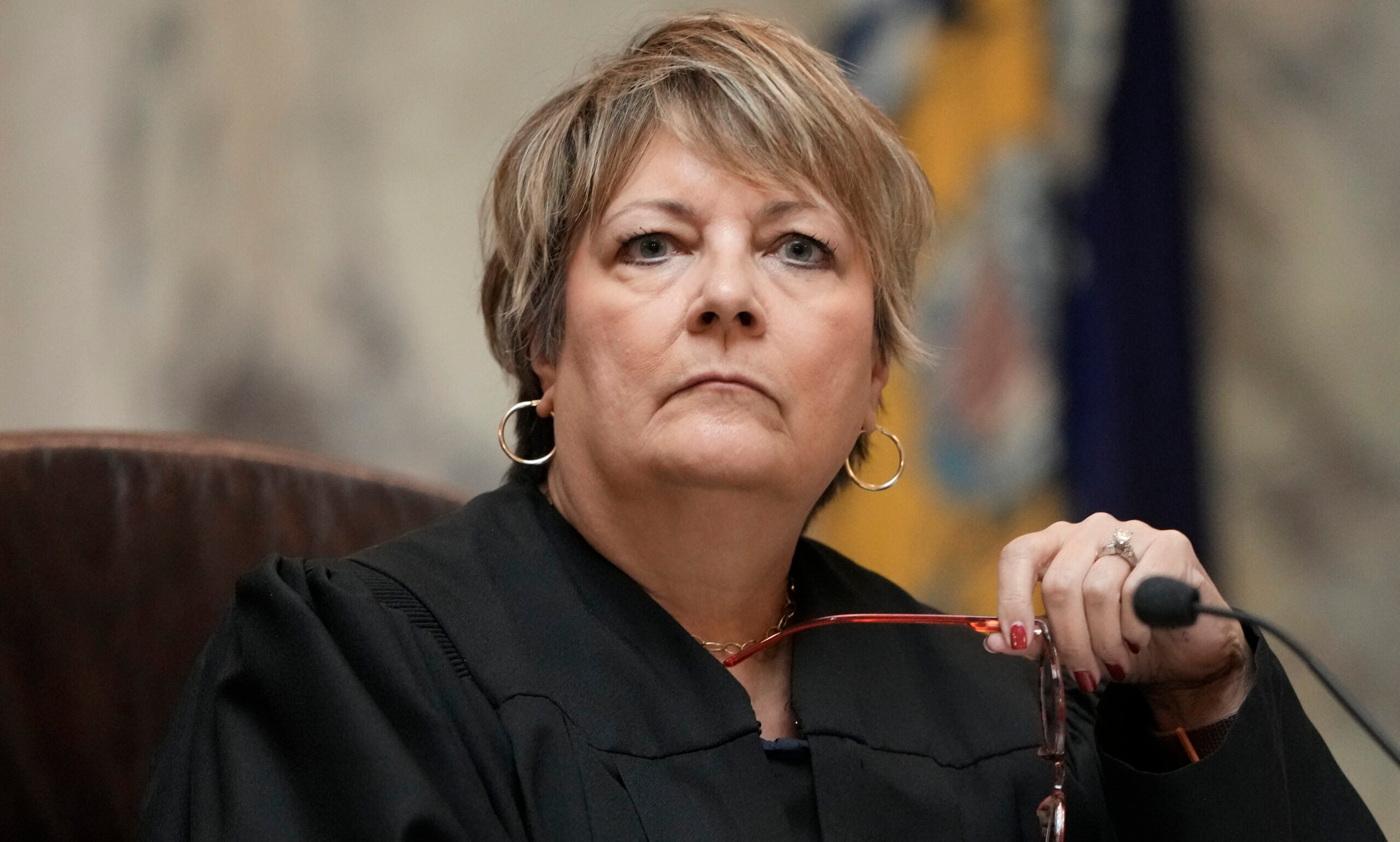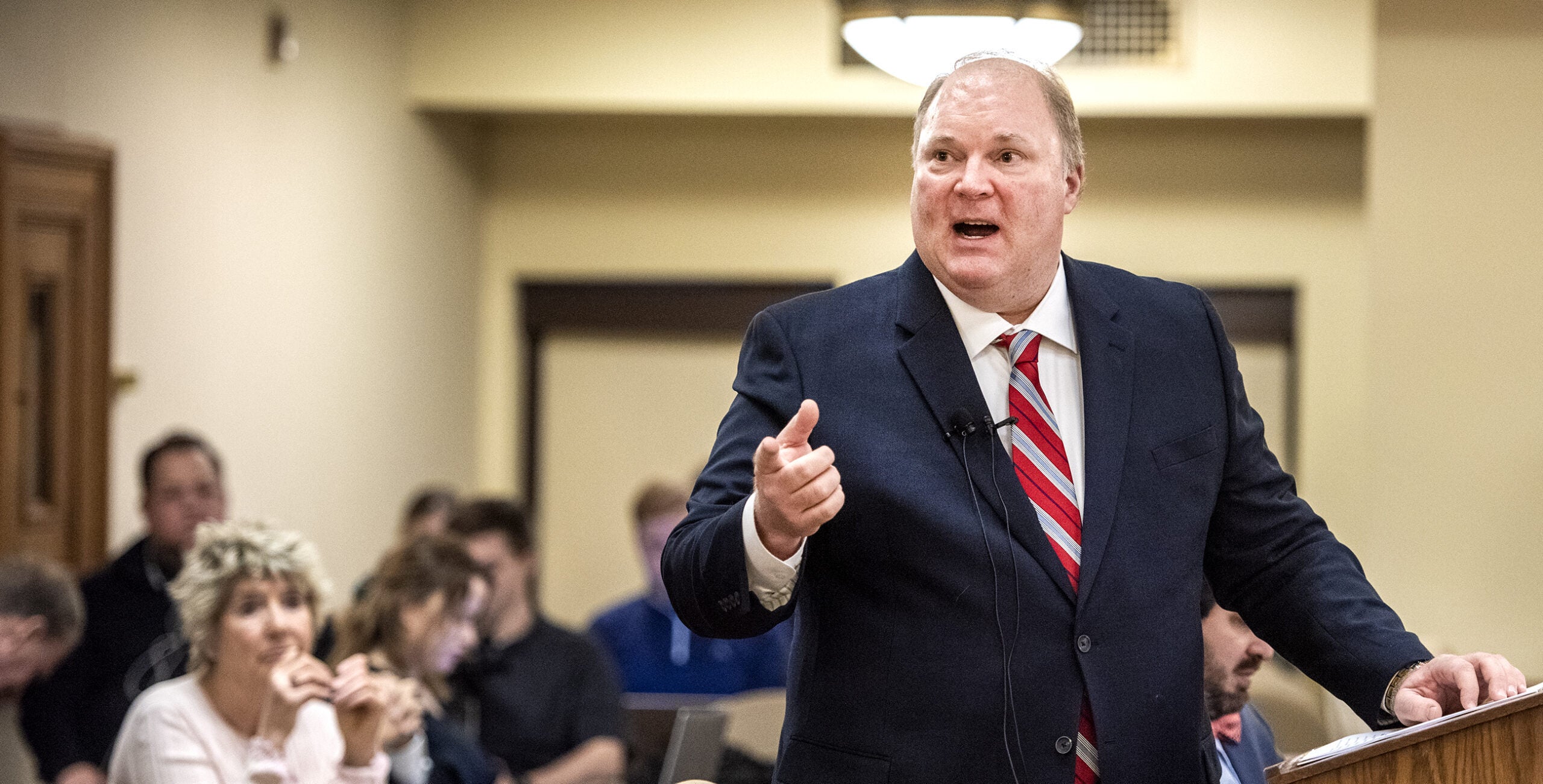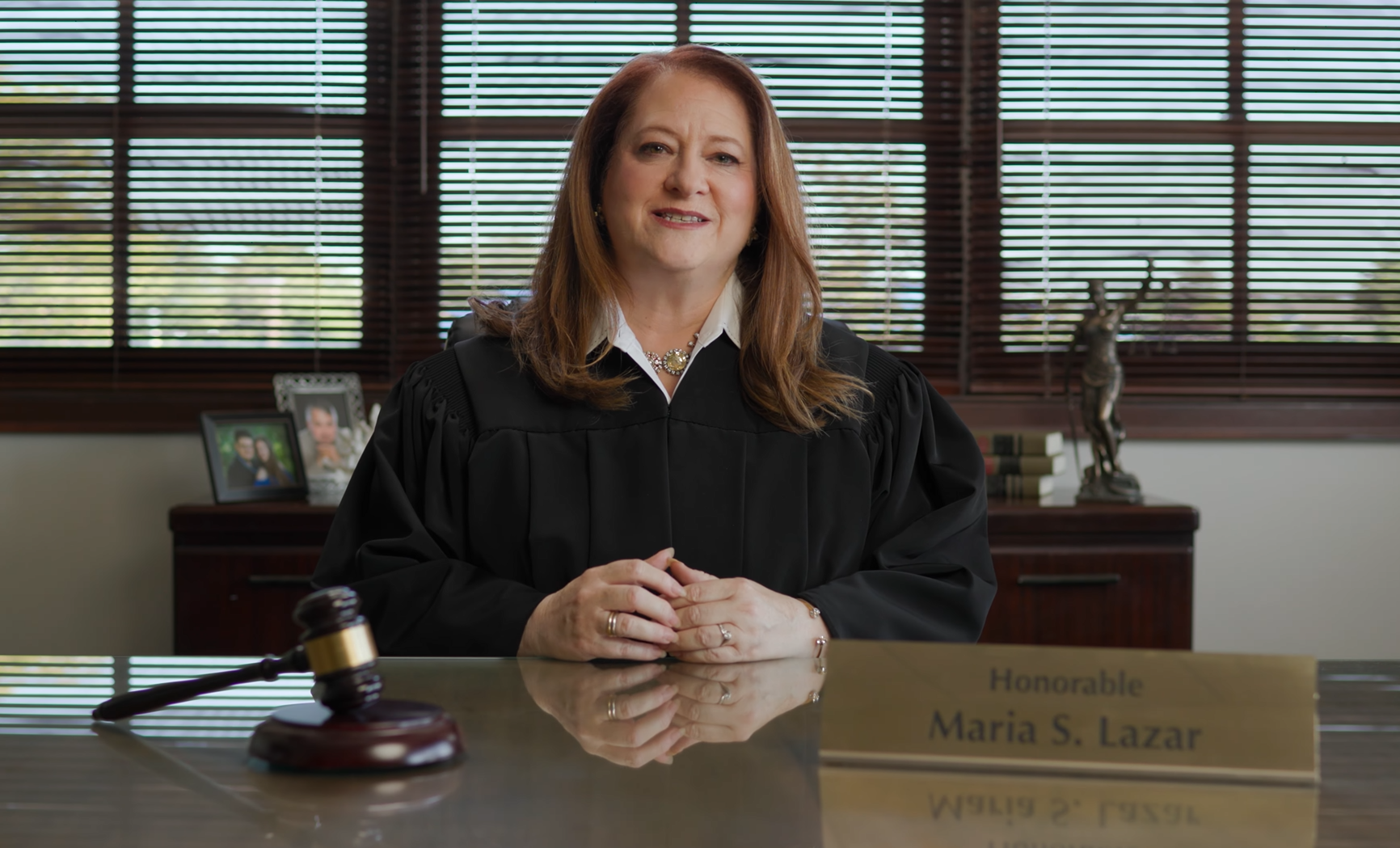As liberals seek to maintain a hard-fought majority on the Wisconsin Supreme Court, a Dane County judge who previously worked for Democrats and represented Planned Parenthood as a private attorney has announced her candidacy for an open seat on the court.
Judge Susan Crawford will run to replace retiring Justice Ann Walsh Bradley, a liberal who announced earlier this year that she will not run for reelection when her term expires next summer.
Crawford joins conservative Waukesha County Judge Brad Schimel in the race, which will — once again — determine the ideological balance of the court.
News with a little more humanity
WPR’s “Wisconsin Today” newsletter keeps you connected to the state you love without feeling overwhelmed. No paywall. No agenda. No corporate filter.
The election last spring of Justice Janet Protasiewicz shifted Wisconsin’s highest court to a liberal majority for the first time in 15 years, and was heralded by Democrats as an opportunity for their priorities.
In a written statement announcing her candidacy, Crawford framed her campaign as a chance to preserve the current makeup of the court.
“For the first time in years, we have a majority on the court focused on getting the facts right, following the law, and protecting our constitutional rights,” Crawford said in a statement. “We can’t risk having that progress reversed.”
Bradley, who has served on the court since 1995, surprised some court watchers when she said in April that it was “time to pass the torch.” Schimel, the state’s former Republican Attorney General, had already announced his own candidacy in November, framing it as a challenge to the new “leftist majority.”
If last spring’s election of Protasiewicz is any indication, the race to replace her will be a heated one. Donors poured millions into the 2023 race, which ultimately shattered national fundraising records for a state court race.
That election also sparked challenges about how openly judicial candidates can speak about issues of the day. Although judicial races are officially nonpartisan, candidates often receive party support, and Protasiewicz was open about what she described as “personal beliefs.”
Protasiewicz articulated support for abortion access and called Wisconsin’s legislative maps “rigged,” which later led Republican legislators to call for her recusal and potential impeachment. Legal precedent suggests judicial candidates can share personal opinions as long as they do not pre-judge a case.
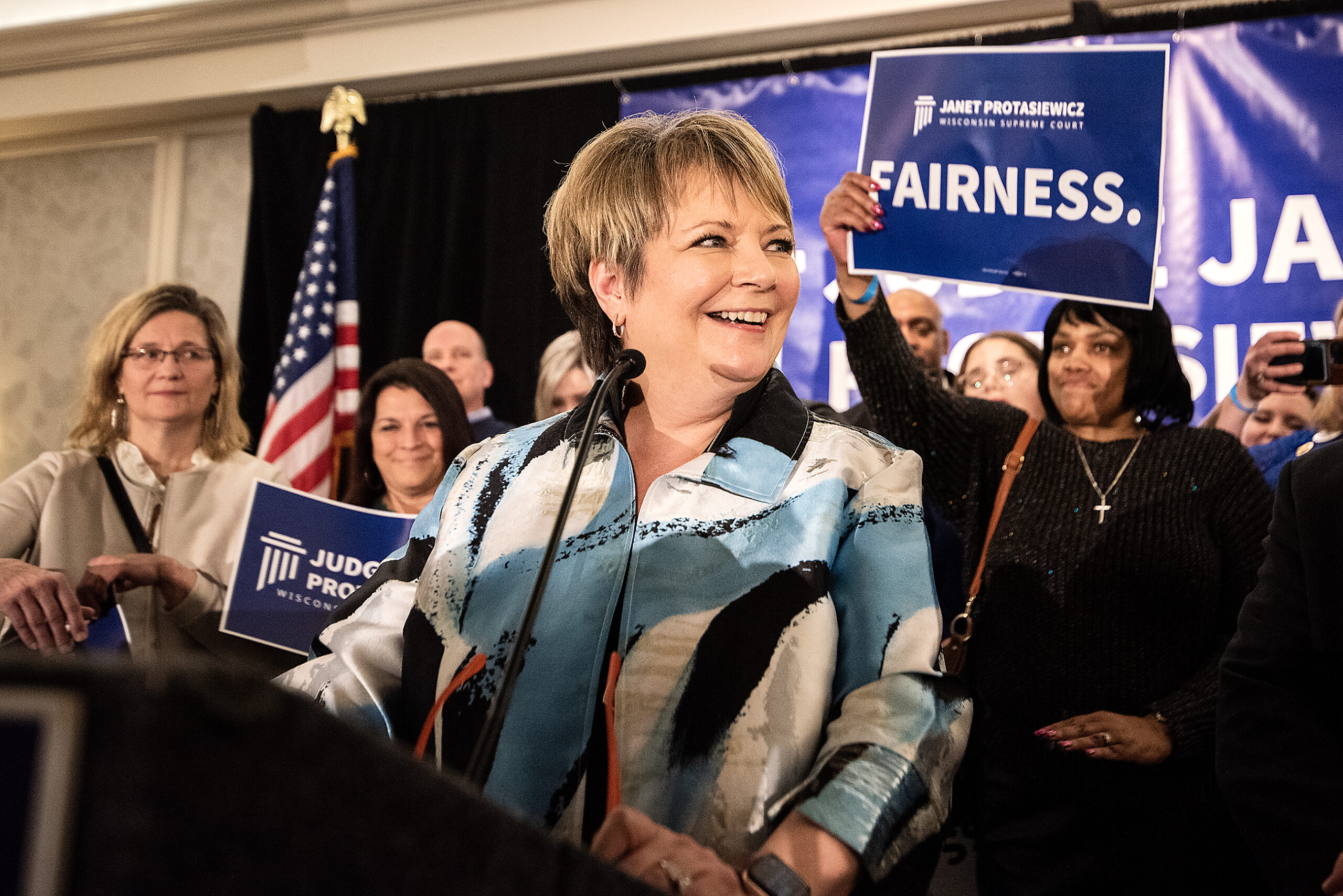
In her campaign materials, Crawford hinted at a similar approach. She highlighted Schimel’s support for abortion restrictions, and emphasized her record as a prosecutor, saying she would focus on public safety.
“I believe people in Wisconsin deserve to feel safe as they go about their lives — in their homes, driving down the road, or walking to the grocery store. My top priority in making decisions is always to make our communities safer,” she said in a written statement.
In a statement shared with WisPolitics, Schimel said Crawford was “handpicked by the leftist majority on the Supreme Court to cement their stranglehold for another three years.”
The Democratic Party of Wisconsin — which spent millions supporting Protasiewicz’s candidacy — responded to the news with a press release attacking Schimel as “an extreme, right-wing politician who has launched attacks on reproductive freedom.”
Meanwhile, the Republican Party of Wisconsin argued Crawford is the extremist.
“Wisconsin Democrats are doubling down on extremism by pushing their bought-and-owned liberal lawyer Susan Crawford for the Wisconsin Supreme Court. Wisconsinites deserve better on the Supreme Court than a partisan shill like Crawford,” spokesperson Matt Fisher said in a statement.
Bradley’s term expires next summer and the election to replace her will be on Apr. 1, 2025. If additional candidates join, there will be a primary on Feb. 18, 2025.

Crawford previously worked for Planned Parenthood and former Gov. Jim Doyle
Crawford has served as a circuit court judge in Dane County since 2018. She was reelected this spring to a second six-year term.
Previously, she served as chief legal counsel to Democratic Gov. Jim Doyle, and as an attorney in various state roles, including as an assistant attorney general when Doyle was the state’s attorney general. She also worked for the liberal law firm Pines Bach in Madison.
As a private attorney, she represented Planned Parenthood of Wisconsin during a case challenging a ban on medical abortions a decade ago. And as a judge two years ago, she sided with Democratic Attorney General Josh Kaul’s lawsuit challenging Wisconsin “lame duck” laws that were passed by the GOP-held Legislature to strip powers from Kaul and Gov. Tony Evers before they took office. That case is still pending and likely to reach the state Supreme Court.
Two former Democratic lawmakers and current Wisconsin Appeals Court judges, Chris Taylor and Pedro Colon, said earlier this year they would consider running for Supreme Court. Taylor has since said she will stay out of the race.
On the conservative side, Wisconsin Court of Appeals Judge Maria Lazar has also said she’s considering a run.
Since liberals took control of the court, justices struck down Republican-drawn voting maps, setting the stage for a prospective shift in legislative power this November.
They’re expected to hear a case, currently making its way through lower courts, challenging a 19th century law previously interpreted as banning abortion in the state. And they’re expected to hear a variety of voter access laws in a critical election year where Wisconsin is poised to be a national battleground.
Legal experts have said that such high-tension — and high-cost — judicial races are increasingly the norm as major political issues get kicked to state courts for final determination.
Crawford did not immediately respond to WPR’s request for an interview.
Wisconsin Public Radio, © Copyright 2025, Board of Regents of the University of Wisconsin System and Wisconsin Educational Communications Board.

